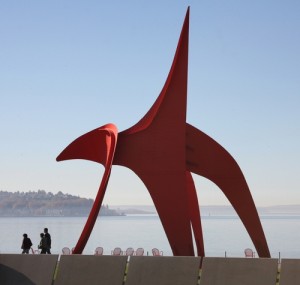Prosector
This morning, on our walk between rain squalls
we circled the lake at the head of the Cayou valley.
There, amidst an insistence of flickers, a burble
of robins, the rusty scrape of the red-wing blackbird,
we happened upon a black-feathered shape, which flew up
at our approach, into the trees. Where it had been,
what had seemed a rumpled blanket,
was a doe, no more than two days dead.
Ribs furled around a thorax
empty of lungs, empty of heart, open
to the thin mist of rain. And the ribs themselves,
pink and clean of meat, a lesson in anatomy taught
by that bald scavenger waiting above, waiting
to resume his lecture on our shared fate.
“Prosector” previously appeared in the Journal of the American Medical Association.
Ted McMahon’s poetry has appeared in Seattle Review, Convolvulus, Manzanita Quarterly, Rosebud, and the Journal of the American Medical Association, and on The Writer’s Almanac with Garrison Keillor. His full-length collection is The Uses of Imperfection, published in 2003. He published a chapbook, First Fire, in 1996. Ted received the 1999 Carlin Aden Award for formal verse from the Washington Poets Association, and a 2004 Artist Trust GAP Grant. He was finalist for the Ruth Stone Prize in Poetry in 2005. Ted was a co-editor at Floating Bridge Press in Seattle from 1999-2006. He currently practices Pediatrics half time in the Seattle neighborhood of Ballard and devotes the other half to writing and leading river journeys. He lives in the Seattle neighborhood of Wallingford with his wife, photographer Rosanne Olson, and their two Maine Coon cats, Zoe and Maxx.

